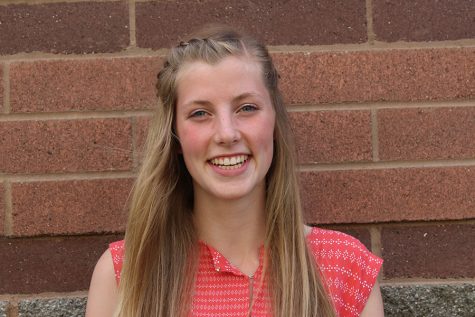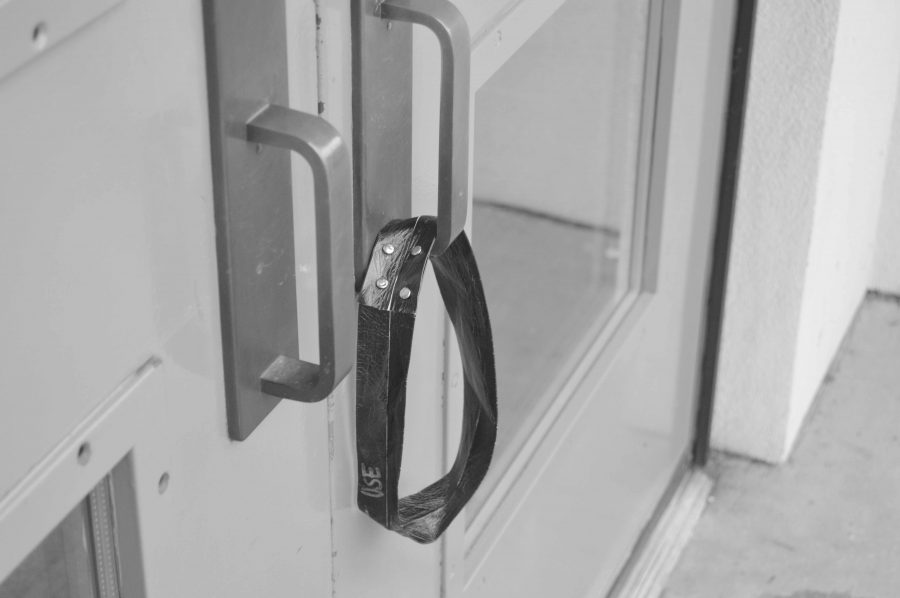Every student knows that horrible feeling, the dread of your first glance at an incomprehensible test.
Your heart sinks, most likely dragging your GPA along with it. Drumming your fingers on the tabletop, you struggle to gather the few dusty cobwebs of knowledge you still retain. Turning your attempt in, you walk away with the unsettling knowledge that you did not do well.
Thankfully, good study habits can prevent this unfortunate scenario. AP Psychology teacher Matt White and Cherokee Ainslie, AVID and English teacher, describe useful habits to improve performance and decrease stress. Junior Sang Lee, who is balancing six AP tests, also suggests helpful tips.
“Most people take notes and just write down what was on the PowerPoint slide or on the board and write it word for word. That has next to no helpful learning at all. All that is just writing stuff down. Writing stuff down is not learning. Learning is evaluating, analyzing, interpreting, prioritizing, that is what notes should be,” White said.
The all-too-familiar anxiety students experience is brought about by bad study habits that focus on short-term, rather than long-term knowledge.
“Instructors say ‘here, just write down everything that I say or write and you will know it all for the test.’ This is true, it is going to be on the test, but they are not going to learn anything. They are just writing down what they were told to do,” White said.
In order to combat this, White recommended using note-taking strategies like Cornell Notes or color-coding.
“As for best goes, Cornell is a very popular [note-taking strategy]. I think that what students need is they need just a framework to make by themselves. They need application questions, they need to make connections to prior knowledge, they need to get vocabulary all in one place,” White said. “Cornell is probably the most popular because it seems to have the most science showing that it is successful and accurate.”
Ainslie agreed, elaborating on the many ways that using Cornell Notes makes studying better, easier and more efficient.
“They are great study guides, because your questions are written on the left-hand side and the answers should be on the right-hand column, which is where the class notes are being taken. I know students hate the summary part, but after a while if they have that summary to go back to… it is nice to see if you can summarize key points in one or two sentences,” Ainslie said.
Students in White’s class are expected to follow a particular style of taking notes.
“They are basically a format of Cornell Notes in which students are required to do the very things that I just discussed. The only thing I add is that they are color-coded, so when you go back to use them as a study tool… they are easier to organize. It just keeps them organized by color,” White said.
As White explained, this type of organization may be especially important for this generation of students.
“The other thing is that brain research seems to show that your brains, that is, those of you who are digital natives, who have spent your whole lives looking at things on a computer screen, look for things that are hypertext. Different colors and different ‘whatevers’ mean something to you. Color coding is so that your brain is like ‘oh that is a green vocab word’ or ‘that is a purple definition’,” White said.
Ainslie also highly recommended color coding.
“I think color coding is also helpful for students…it correlates to something that they need to think about. I think that both Cornell and color coding is useful because you are able to get all types of learners in,” Ainslie said.
According to Ainslie, putting notes into question form and then using it to quiz your self is extremely beneficial.
“When I was in high school, I did not know about Cornell Notes. The two main focuses for me were always outlining chapters and then… study guides. With Cornell Notes, the study guide is already built for you,” Ainslie said.
Even the most perfectly structured notes are not helpful if they are not used correctly. This is where studying comes in.
“I put less emphasis on how I take the notes and more on how I am thinking about them. I take a lot of notes in the margins and notes within my notes… in AP Psychology last year I learned a lot of stuff like deep level processing, which is when you integrate the knowledge of your material and connect it to prior knowledge. Even if I do not have the deep level processing notes down when I go over my notes I try to make connections to test myself,” Lee said.
The studying environment is almost as important to efficiency as content is.
“I do not recommend studying in groups. A lot of time group study sessions feel like they are so awesome, the best time ever…but really you need to process it yourself. The only person who is going to be sitting there on the AP exam is going to be you,” White said.
However, Ainslie considered group studying to helpful in some cases.
“I think it is important to do both. Studying by yourself helps you check what you remember and cement your knowledge, while studying in a group adds that element of teaching someone else. With the two methods you are looking at the information differently,” Ainslie said.
Lee uses a unique system to manage his studying time.
“I have tried studying with other people and you rarely accomplish anything. I like to study alone and set up a pomodoro timer. It is this study technique that is really popular. It is a tomato timer and you study for 25 minutes and then it rings and you take a five-minute break. You keep on going around that thirty-minute cycle,” Lee said. “ I use it when I have at least four hours of work. It keeps you energized the whole time so you get a lot accomplished. During my five-minute break I surf YouTube and Reddit. I also drink coffee and eat sweet snacks while I study.”
Cramming is widely recognized as a deadly habit, and yet students continue to resort to this last-ditch effort. This is only helpful for the upcoming test, not for long-term learning.
“Teachers have organized things so that the day before a test we have a review. That is called massed practice. Massed practice is the least effective learning tool. What people should have is what is called distributed practice; that is a little bit at a time. If you want to learn something you need to learn and work out a little bit at a time,” White said. “The person that studies 15 minutes a day for four days will score higher every time than the person who studied for one hour the night before. It is tortoise and the hare and tortoise always wins.”
According to White, the earlier studying begins, the more effective distributed practice becomes.
“If you did a little bit at a time, for example only 15 minutes a day, months in advance, that adds up to hours upon hours of studying. And, it only cost me 15 minutes a pop. Everyone can come up with 15 minutes every day,” White said.
Simply studying smarter and harder can greatly reduce the many negative consequences of stress. As any health class would teach, 15 minutes daily could save you 15 percent or more on cortisol levels.
Study tips help relieve symptoms
Emily Van Bergeyk, Focus Editor
Published June 1, 2016
Story continues below advertisement
0
Donate to The Viking Vanguard
$15
$500
Contributed
Our Goal
Your donation will support Viking Student Media and the content we create. Your contribution will allow us to purchase equipment and cover our annual costs, including website hosting, printing the newspaper and yearbook, and purchasing new equipment.
More to Discover
About the Contributor

Emily Van Bergeyk, Website Editor
Web Editor Emily Van Bergeyk joined The Viking Vanguard in 2015. Van Bergeyk is part of the Varsity cross-country and track teams. Van Bergeyk enjoys drawing, playing the piano and cooking. In her free time Van Bergeyk belongs to different clubs like Key Club and Honor Society, as well as playing in the PHS band. Volunteering with small children, Girl Scouts and being part of “Young Life” are the other activities that fulfill her free time. Making other people smile is what makes her the happiest. After high school, Van Bergeyk would like to become a microbiologist.


